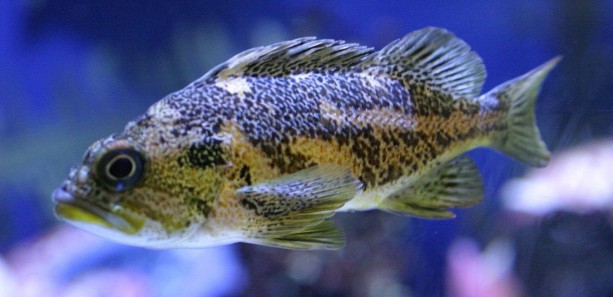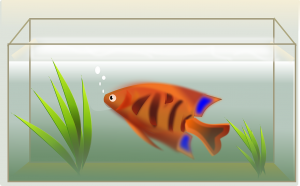Fish are a popular source of food worldwide. However, our oceans are already over-fished and the wild fish stocks are declining rapidly. As demand for locally-grown fresh seafood increases, indoor aquaculture could be a major solution for producing more fish in a sustainable way.
Aquaculture has been one of the fastest growing industries in the United States. It is also one of the main sources of protein around the world.
Our oceans have long been the main sources of fish for the market, and as a result, our oceans have been very over-fished and exploited.
Could indoor fish farming be the answer?
One of the main benefits of aquaculture is that it reduces pressure on wild fish stocks and allows them to grow back. There is plenty of opportunity to raise fish indoors. The future of urban agriculture might begin with indoor aquaculture.
I have heard of people turning their basements into fish farms, using simple plastic containers, aquariums, fish tanks or tubs and tap water to raise fish. That’s an excellent way to have an indoor fish farm.
All you need is some space to place your fish tanks in and you are ready to go.
A good-sized basement, warehouse or anywhere in the house where you’re able to place suitable containers to raise fish indoors can be ideal for indoor fish farming. The best part of indoor aquaculture is that you can do it at any scale, large or small, depending on the size of your space.
What are the advantages of an indoor fish farm?
 When you have your fish farm indoors, you don’t have to worry about the harsh weather outside.
When you have your fish farm indoors, you don’t have to worry about the harsh weather outside.
Among many other benefits, raising fish on an indoor farm can keep your fish safe from pathogens and outside predators because they are away from any other bodies of water and animals. If you’re using a municipal supply water, this is generally very safe for your fish. There is less risk of disease and you also don’t need to worry about herbicides, pesticides or contamination from other ponds or pollution. All you need to do is recycle your water and clean the waste.
Indoor fish farms need less water and they are safer than any land-based fish farm. One huge advantage is that you are able to raise warm water fish, such as shrimp or tilapia, that grown in hot weather.
Eighty percent of warm water fish is imported from Asia or South American countries. These fish could easily be grown indoors. Tilapia are good for indoor fish farming because they are strong and healthy fish with high feed-to-mass conversion rate.
Is indoor fish farming profitable?
Certainly, the demand for locally caught fresh fish is rising in the United States. There is also an opportunity for greater profit if you go with organic fish farming. In order for a fish farm to be organic, it has to rely on organic methods of pest control and organic herbicides. Organic fish farming also involves using non-toxic methods of raising, feeding and harvesting of fish. There are many people who are willing to pay extra money for organic farmed fish. There is also a market for live fish.
Small sized fish farms operating from the basement of a house or a warehouse are already popular in big cities such as New York, Boston and Chicago. Martin P Schreibman, a professor of biology in Brooklyn College, New York, has already farmed thousands of tilapia from his indoor farm.
“Schreibman’s idea is to create urban fish farms all over New York. He points out that urban aquaculture could be a USD 1.5 billion-a-year industry” – New York: Urban fish farms – Danish Architecture Centre
Conclusion
 Indoor fish farming could be an easy solution for raising enough fish to supply food for the growing population, and also making enough money and food for ourselves. Producing enough fish could also mean releasing pressure on ocean fishing and giving our oceans’ fish stocks a chance to recover.
Indoor fish farming could be an easy solution for raising enough fish to supply food for the growing population, and also making enough money and food for ourselves. Producing enough fish could also mean releasing pressure on ocean fishing and giving our oceans’ fish stocks a chance to recover.
Would you like to start your own fish farming business? We can show you how. Click Here to Get Your Free eBook to Unleash the Entrepreneur in You!
I hope you found some valuable information in this article. We would love to hear your thoughts on it. Please leave a comment on our Facebook page or in the comment box below. It would greatly inspire us.
If you would like to get a hold of us, call us at 303-495-3705 or click here to book a meeting with us.
Source: WorldWide Aquaculture




Very interesting article , but i have to make a question : the stage of cleaning water how can it be low ? Also for this purpose should be make a network in which sea water will be delivered to aquaculture .Am i right. All these won’t gonna cost ?
Hi Lou, Thanks for your thoughts
Every weekend i used to pay a visit this website,
as i wish for enjoyment, as this this site conations in fact pleasant funny stuff too.
I don’t know if it’s just me or if perhaps everybody else
encountering problems with your site. It appears as though some
of the written text in your posts are running off the screen. Can someone else please comment and let me know if this is happening to them too?
This may be a issue with my browser because I’ve had this happen previously.
Thank you
Do you have advice for us, so we can become a reliable writer.
Hopefully in the future you post how to write good and right, even more!
Indeed, writing articles is one of the strengths in creating a website.
So, a webmaster must have a lot of knowledge to make the website more advanced and
have a ranking. Even though you have already discussed some important points, discussions
in comments are also needed, thank you for providing
us with a comment tab.}
It’s hard to come by well-informed people
for this subject, but you seem like you know what you’re talking about!
Thanks
Thanks for sharing such a pleasant opinion, post is nice, thats why i have read it fully
If you want to grow your familiarity just keep visiting this web page and be updated with the latest news posted
here.
of course like your website but you have to check the spelling on quite a few of
your posts. Several of them are rife with spelling problems
and I find it very troublesome to inform the truth on the other hand I will certainly come again again.
thank you for this post, I am a big big fan of this website would like to continue updated.
Excellent post. I used to be checking continuously this weblog and I’m inspired! Very useful information specially the final phase 🙂 I handle such info much. I used to be looking for this certain info for a long time. Thank you and best of luck.